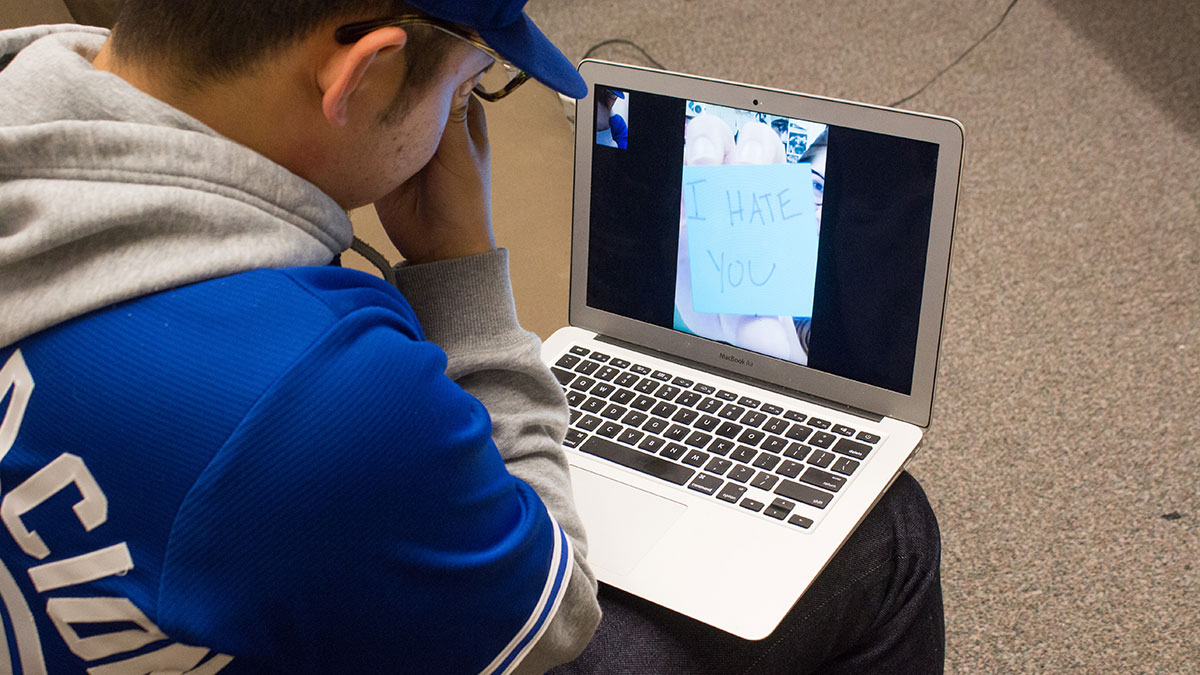 Christina Varvis
Christina VarvisWhile the effects of cyberbullying can be debilitating, the behaviour itself often goes unreported.
According to a recent study coauthored by several University of Alberta doctors and researchers published in the JAMA Pediatrics Journal, 23 per cent of adolescents aged 12 to 18 report being bullied online. The study revealed a number of findings regarding cyberbullying, the most noteworthy being that the effects of bullying can be as bad as or worse than child abuse.
Michele Dyson, a researche associate in the Faculty of Medicine’s Department of Pediatrics and assistant professor at the Alberta Research Centre for Health Evidence, described how her cohort’s study analyzed 36 studies on cyberbullying and compiled the data into one cross-sectional review.
“We didn’t identify any research that looked at what predisposes kids (or) what causes (cyberbullying),” Dyson said.
“However, identifying some of those factors will be important for future research and for preventative management strategies.”
Bullying — defined by the University of Alberta’s Discrimination, Harassment and Duty to Accommodate Policy — refers to a form of aggression that may include physical, verbal or emotional abuse. The document emphasizes that the biggest victims at the U of A are members of the LGBT+ community, with 90 per cent of transgendered individuals reporting instances of cyberbullying.
According to Dyson, a major finding in the study was victims of cyberbullying are reluctant to tell anyone about the incident.
“It’s important for us to remove the stigma surrounding (cyberbullying) and drive home the point that it’s important to tell people,” she said.
“Just ignoring it or pretending like it’s not happening is not necessarily the best strategy.”
A recent report by the Government of Canada stated 90 per cent of Canadians would support a law that would prohibit the “use of any electronic means to coerce, intimidate, harass or cause other substantial emotional distress.”
So far, no law like this has been proposed.
Because of social media’s relatively recent development, Dyson said it is hard to say what the long-term psychological effects of cyberbullying are, though she is hopeful that research on the subject will continue to develop.
“What drew me into this study was the impact of these new technologies that are so prevalent on children’s mental health,” Dyson said.
“I think that for cyberbullying … the research will advance as that long-term impact moves beyond what exists now … to see how we can use this information to prevent it in the future (and) how we can use it to treat kids when it has happened to them.”





If any member of the University community is bullied and doesn’t know where to turn, they can contact the Office of Safe Disclosure and Human Rights. All interactions with the Office are confidential. http://www.disclosure.ualberta.ca